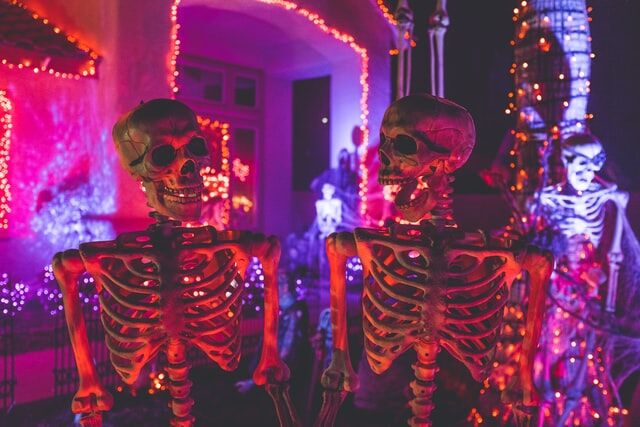Editorial: Staying safe and respectful this Halloween
October 28, 2020
Halloween is a fun night full of spooky traditions along with an excuse to eat too much candy, but this year, it is extremely important to be safe — and every year, it is extremely important to be mindful of what costume you choose.
Whether you dress up and go trick-or-treating or go to a friend’s house, there is a lot to be aware of this Halloween. COVID-19 guidelines need to be followed. Being on a college campus means going to a big party with a lot of people will be a primary temptation, but students should refrain.
Consider a safer alternative, such as having a horror movie marathon with your roommates and inviting a few friends who have been wearing their masks in public and who — hopefully — wash their hands frequently.
For those with small children or younger siblings, a lot of counties, cities and neighborhoods have released some guidance and suggestions for trick or treat night. Anyone going out to trick or treat should know what precautions they should follow.
Some of the safety guidelines for Ames include, but are not limited to, sticking with one’s family group, wearing face coverings when approaching homes, consider packaging treats individually and bringing along hand sanitizer.
To address cultural appropriation, no one likes an offensive costume. Holidays are a great reason for people to express themselves by dressing up. But that expression can easily make others uncomfortable and/or upset.
Cultural appropriation can easily be confused with cultural appreciation. Cultural appropriation is defined as “the act of taking or using things from a culture that is not your own, especially without showing that you understand or respect this culture.”
A good way to think about cultural appropriation to better understand it is to think about the costume in question: does it convey a stereotype? Does the costume show any particular culture in a negative light? Are you part of the culture the costume depicts? If it doesn’t answer positively to these questions, then it probably is a form of cultural appropriation.
Just two examples: if you’re not a person of color, don’t paint your skin to appear as a person of color. If you’re not Native American, don’t wear a Native American headdress.
Talking with others and doing a quick Google search results in a “yes, you can wear that” or “no, you should probably find a different costume” answer very quick.
Be sure to steer clear from costumes that fetishize certain groups of people. The sexualization and fetishization of specific cultures, such as those who have an Asian background, persists despite the negative implications associated with sexualizing an entire culture for Halloween.
“Fetishizing on a basic level is the sexualization of something, which can then make it desirable,” Dr. Oriowo said in an Elite Daily article. “When we are talking about people, fetishizing can be the sexual desire for someone for a physical or cultural attribute they possess.”
In simple terms, people are people, not objects. We all need to take time to really think about how a costume could be perceived to be respectful both of ourselves and the people around us. Put more thought into your costume this year.
Be thoughtful and considerate when planning costumes and use face coverings as a way to enhance them, no matter if the costume has a haunting twist to it or is scary cute. Make this year’s holiday a bonding experience by staying close to your family and friends safely. Carry around Halloween-themed hand sanitizer to make the sanitizing fun.
Halloween 2020 can still be a night to remember. Don’t look at the “rules” as a damper to the holiday. Focus on the good of it and try to pretend life is normal again.
And don’t forget to play a few tricks and eat a good amount of treats.







